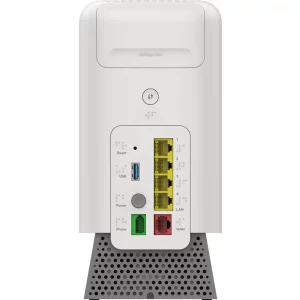Sponsored Links
UPD BT Pledge to Refund ISPs After Overcharging for Cancellation of Cease Orders
Posted: 09th Feb, 2012 By: MarkJ
 BTOpenreach, which is responsible for managing access to BT's local and national UK telecommunications network, has promised to refund all unbundled ( LLU ) broadband ISPs and telephone operators after a three month long investigation discovered that it had overcharged for cancellation of line cease orders in several scenarios.
BTOpenreach, which is responsible for managing access to BT's local and national UK telecommunications network, has promised to refund all unbundled ( LLU ) broadband ISPs and telephone operators after a three month long investigation discovered that it had overcharged for cancellation of line cease orders in several scenarios.In the transfer process for a migration (such as from one broadband ISP to another) there is a 'Gaining' and a 'Losing' provider. Openreach places a cease order on the line once a migration order has been placed by the gaining CP. There is then a 10-day consumer protection period whereby the losing CP can check that their customer really wants to move (to avoid abuse).
If the customer tells the losing CP they have not agreed to migrate their service, the losing CP tells Openreach to cancel the cease order, and it is in this circumstance that BTOpenreach have "occasionally charged CPs in error".
BTOpenreach Statement
"Openreach outlined that on 6th September 2011 we had received an enquiry to clarify charges relating to cancellation of ceases orders on both migrations and 'CP raised' cease orders. This has now been investigated.
Openreach has now carried out a full investigation and this has resulted in the identification of some areas of overcharging. Openreach has suspended cancellation charges from October 2011 (November 2011 bill) onwards for all these areas."
"Openreach outlined that on 6th September 2011 we had received an enquiry to clarify charges relating to cancellation of ceases orders on both migrations and 'CP raised' cease orders. This has now been investigated.
Openreach has now carried out a full investigation and this has resulted in the identification of some areas of overcharging. Openreach has suspended cancellation charges from October 2011 (November 2011 bill) onwards for all these areas."
BTOpenreach has now pledged to begin "proactively refunding CPs for these charges in line with the contractual terms for the relevant product". ISPs can expect a credit to surface, once the details have been finalised, on their March 2012 invoices.
In a statement BTOpenreach told ISPreview.co.uk, "We regret that we appear, on occasion, to have levied charges to CPs in error in specific migration scenarios. We have acted to resolve this error and will be proactively refunding CPs for these charges in line with the contractual terms for the relevant product."
UPDATE 1:05pm
Corrected the article to show that the problem was with how BTOpenreach had handled ceases during the migration process and not directly because of customers "ceasing" lines.
Search ISP News
Search ISP Listings
Search ISP Reviews
Latest UK ISP News








Cheap BIG ISPs for 100Mbps+
150,000+ Customers | View More ISPs
Cheapest ISPs for 100Mbps+
Modest Availability | View More ISPs
Latest UK ISP News
Helpful ISP Guides and Tips
Sponsored Links
The Top 15 Category Tags
- FTTP (6905)
- BT (3915)
- Politics (3114)
- Business (2820)
- Openreach (2697)
- Building Digital UK (2534)
- Mobile Broadband (2525)
- Statistics (2160)
- FTTC (2152)
- 4G (2131)
- Virgin Media (2062)
- Ofcom Regulation (1798)
- 5G (1780)
- Fibre Optic (1616)
- Wireless Internet (1614)
Sponsored
Copyright © 1999 to Present - ISPreview.co.uk - All Rights Reserved - Terms , Privacy and Cookie Policy , Links , Website Rules






























